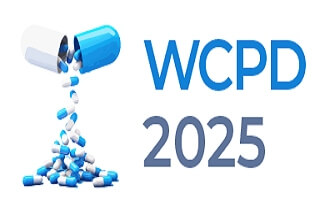2nd World Congress on
Pharmaceutical Chemistry and Drug Development
October 09-10, 2025 | Online
WCPD 2025

Sinhgad College of Pharmacy, India
Abstract:
This study explores the development and evaluation of a gel formulated with ethosomes encapsulating 6-gingerol, aiming to harness its antifungal, anti-arthritic and anti-inflammatory properties. Ethosomes, lipid vesicles enriched with ethanol, have shown potential in enhancing transdermal drug delivery. The research involved preformulation studies using UV-visible and IR spectroscopy. Ethosomes were synthesized through a modified cold method utilizing soya lecithin and ethanol, resulting in particle sizes ranging from 130-170 nm and zeta potentials between -24 to -30 mV. The entrapment efficiency (EE) of ethosomes was observed to be 70-80%. The ethosomal gel, formulated with Carbopol 934, underwent evaluations for viscosity, spreadability, pH, texture, and skin irritancy. In vitro analyses using the protein denaturation method demonstrated significant anti-inflammatory activity, with a peak inhibition of protein denaturation at 72%. Additionally, an in vitro agar plate method assessed the antifungal efficacy, revealing zones of inhibition measuring 19.99 mm for 100 ppm, 24.98 mm for 200 ppm, and 29.98 mm for 400 ppm, compared to 34.99 mm for 2% ketoconazole as marketed formulation. The findings suggest that the 6-gingerol-loaded ethosomal gel offers a promising approach for delivering herbal medicines, particularly in treating rheumatoid arthritis and fungal infections.
Biography:
- Dr. Sadhana Raut has completed her Ph. D. from BVDU’s, Poona College of Pharmacy. A dedicated and innovative Associate Professor in Pharmaceutical Sciences with over 15 years of experience in academia and research. She is an Associate Professor at Sinhgad Technical Education Society’s, Sinhgad College of Pharmacy. She has published more than 10 papers in reputed journals, 6 books and 2 international book chapters. Granted a design patent for a "Device for Instant Estimation of Glycerated Haemoglobin for Diabetic Patients." Presented posters and oral papers in national and international conferences. Actively participated in over 30 seminars, conferences, and faculty development programs (FDPs), enhancing academic and research skills. Attended workshops and served as a chair and subject expert on various academic and research panels. Guided and co-guided multiple postgraduate and undergraduate research projects, resulting in significant contributions to the field.
